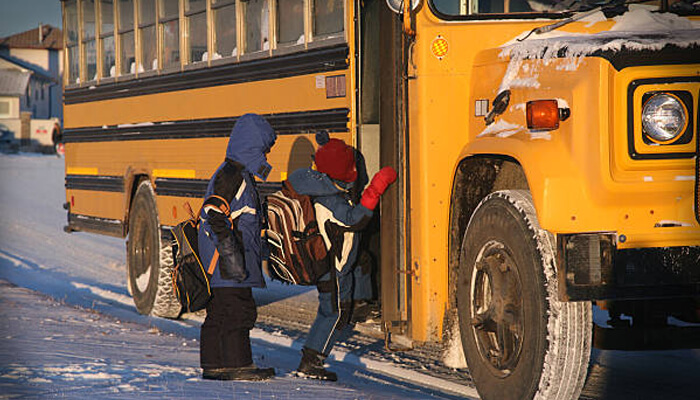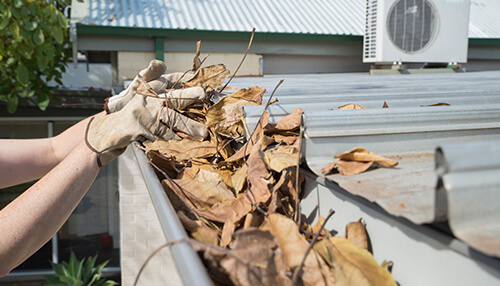The start of a new school year can only mean one thing: winter is coming. Winter weather brings hazardous conditions, which can make it unsafe and risky for both staff and pupils. And if the school building has been damaged and is considered unsafe, or the school has no heating or lighting, this could result in needing to close your school.
To prevent this from happening, you should adequately prepare your school premises for the harsh winter conditions. Keep reading to find out how.
Gritting the premises
Gritting or adding salt to areas that are prone to becoming icy is very important for safety. In a school setting, these areas could include walkways, parking areas, entrances, pathways, playgrounds and vehicle access routes.
For a quick and efficient way to spread salt and grit, you can purchase a grit-spreader. They will spread the product evenly and prevent caretakers from hauling heavy bags of salt around with a shovel in the freezing cold. Depending on your school, you can choose from different types of spreaders:
1. Tow-behind spreaders – best suited for car park areas and play areas. They can be operated by a car, truck, quad-bike or any appropriate vehicle fitted with a tow bar.
2. Pedestrian spreaders – the best option for smaller spaces, these only need to be pushed along by hand to spread the salt.
Clean the guttering
All the leaves, dirt and grime that have accumulated throughout the year can all be washed into the roof’s drainage system when it rains hard. This can prevent rainwater from flowing away and, in more severe situations, may result in the roof developing leaks and the appearance of damp, which can be very costly to resolve.
By cleaning the guttering you can make sure that all the pipes are clean and flow well. This way when it snows or ice builds up around them and begins to melt, you can rest assured that it will drain through without any issues or leaks.
Check boilers and radiators
Keeping the rooms in your school warm is very important in the winter. A cold classroom means that children won’t be focused on their learning and will find it hard to concentrate.
You should check that all boilers have been serviced and are working correctly, so the chance of them breaking down in the cold is reduced. You should also make sure that all the radiators are checked and ensure they are operating correctly. This includes looking at the valves, ensuring there is no rust or mould and bleeding them if needed.
Disinfect germ hotspots
Colds, flu and other viruses spread like wildfire in the winter, especially in schools where children mix with each other in enclosed spaces. It is important to keep disinfectant handy to fight against any germs that may have sneaked their way into the classroom, eradicating them quickly before they have the chance to spread.
You can use a disinfecting spray or wipes to clean the hotspots in a classroom such as light switches, drawer handles, chairs and tables.
Check the lighting
Winter brings not only cold weather conditions, but also darker days and longer nights. This means that staff members and students may arrive at school (or leave it) when light levels are low. Checking that all the lights are in good condition and work properly in and around the school premises can ensure that everyone is safe.
Although natural light is the best type to incorporate in the classroom, during the winter LED lights are a great alternative. For outdoors purposes, floodlights and high bay lighting illuminate areas for pupils, teachers and parents to ensure safety around the school.



